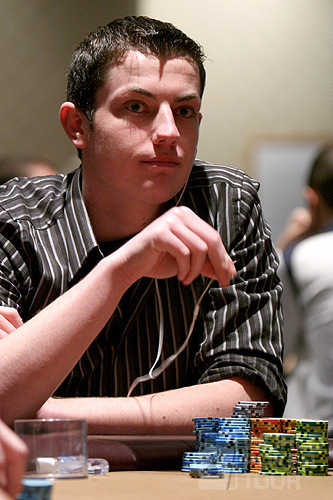






Deal Me In -- Tom DwanAn Exclusive Excerpt from Phil Hellmuth's New Book |
|
|
 In its pages are never-before-revealed details of the lives of some of the biggest names in poker. Phil Hellmuth’s new book profiles 20 of the biggest poker players in the world, giving the reader an intimate look at the game’s biggest celebrities.
In its pages are never-before-revealed details of the lives of some of the biggest names in poker. Phil Hellmuth’s new book profiles 20 of the biggest poker players in the world, giving the reader an intimate look at the game’s biggest celebrities.
Deal Me In, a collection of autobiographical accounts from many of poker’s elite, is now available to order online exclusively at www.pokerbrat.com. The book highlights the struggles, obstacles, and tragedies that 20 of the greatest poker pros have overcome in their journeys to the top.
CardPlayer.com is providing exclusive excerpts from the book each Sunday. This week’s passage focuses on Tom Dwan, better known as “durrrr” in the online poker community. Dwan describes his mindset concerning the game in this passage:
“I’ve always been a little unconventional compared to other high-stakes players in poker. Though many believe that reading your opponent is a huge factor in winning, I think it’s highly overrated by most recreational players. That said, poker is a game almost equally about the cards you get and your opponents’ actions, including their overall thought processes and their current frames of mind.

“Though a player cannot consistently win by using intuition alone, I have also played against people who exclusively use mathematical probabilities in their technique. I find it unwise to ignore the more complex logic and unique individual aspects of poker, and those who neglect this factor end up losing much of the time. Math has a definite place in poker, like any game, and being oblivious to it will obviously be very costly, but it is important also to be conscious of your opponents’ tendencies and moods.
“There are far fewer chances for good decisions based on reads in big-money cash games, where players are more often highly skilled. Players who are really good are going to be really good at all aspects of the game, regardless of what they might try to claim. They will know the math, they will know the complexities of their opponents, and they will surely understand the intricacies of each situation, using their experience as an advantage.
“Another big part of poker success lies in watching the best people play. As I mentioned earlier, you can learn a lot by watching mistakes online and remembering the outcome if a situation repeats itself. Watching people’s successes can also be beneficial, both online and live. I wouldn’t say that I model myself after any one player in particular, but there are plenty of great players that I can learn from while watching, such as Phil Ivey and Patrik Antonius.”
